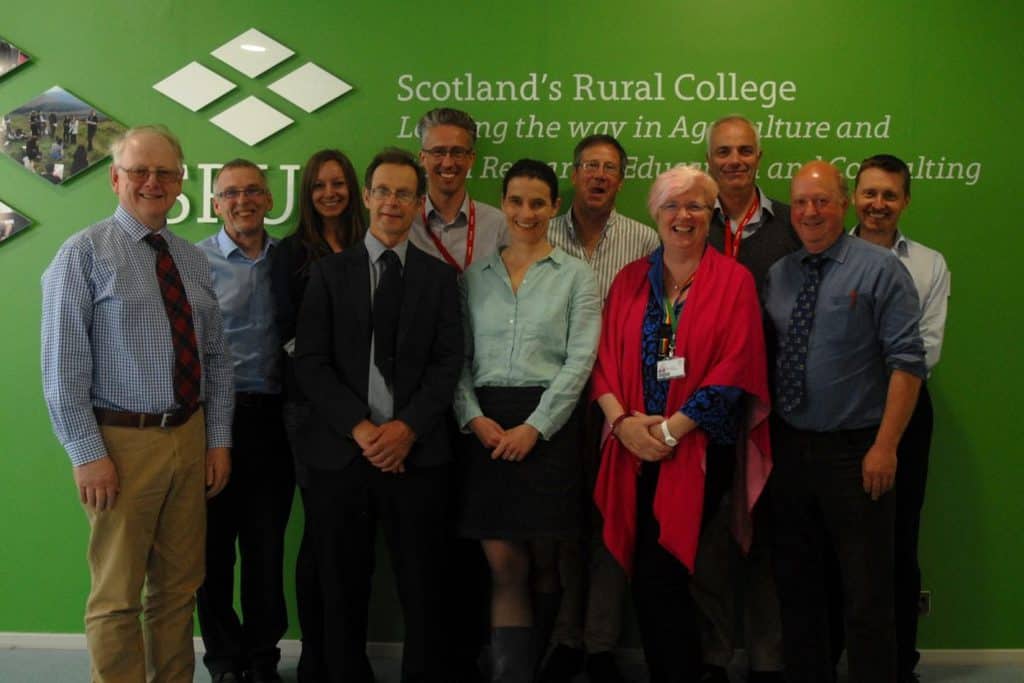A new Independent Climate Change Inquiry is to explore how a low carbon landscape can support a bright future for farming and food.
The ‘Farming for 1.5 degrees’ group met for the first time in Edinburgh yesterday (11 June). The ten strong inquiry panel includes four farmers from different sectors as well as leading scientists and environmentalists. It will be co-chaired by Mike Robinson and Nigel Miller.
The aim is to produce a consensus report on the way forward for farming and land use in Scotland in the context of the Scottish Government’s commitment to net zero greenhouse gas emissions by 2045.
The inquiry is supported jointly by NFU Scotland and leading food policy charity Nourish Scotland. Over the next 12 months the panel will hear from a wide range of witnesses and bring together evidence and views from many different sources.
Its final report will propose agreed targets for reducing net greenhouse gas emissions from Scotland’s agriculture and related land use while continuing to produce high quality food: and will identify the specific measures needed to achieve these targets.
Kicking off the first meeting, co-chair Mike Robinson, Chief Executive of the Royal Scottish Geographical Society commented: “Farming and agriculture have a huge role in delivering a safe climate. We’ve brought together an expert panel who are really well placed both to detail how best to achieve this and what government and others will need to do to help support the farming community.”
NFU Scotland President, Andrew McCornick said: ““Scotland’s farmers and crofters are part of the solution in delivering on the landmark CCC recommendation that Scotland can achieve net-zero emissions by 2045.
“This independent inquiry is a ground up initiative looking for solutions that work for the industry at grass roots level.
“The farmer involvement in this inquiry will help shape its findings and build on the green credentials that already exist around Scotland’s agriculture. Reducing agricultural emissions in Scotland will be fundamentally challenging but, we believe, need not be at the expense of producing food, cutting livestock numbers or exporting our emissions by relying on food imports.”






